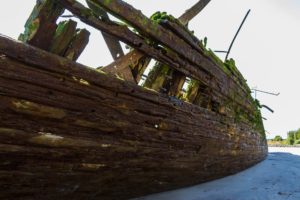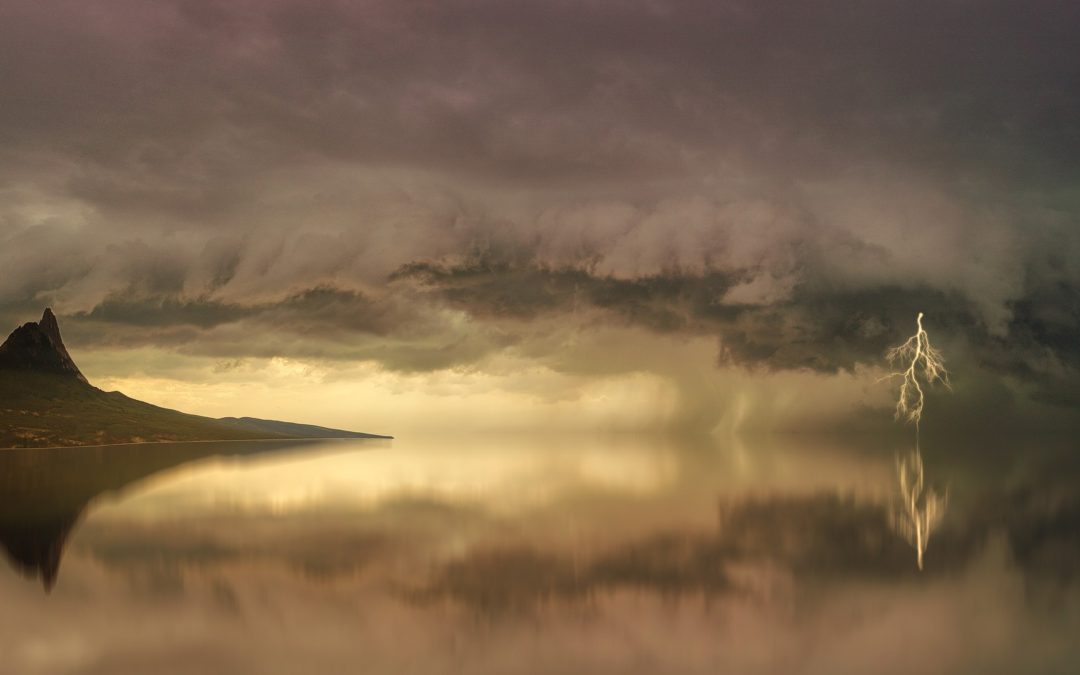
Indeed, I count everything as loss because of the surpassing worth of knowing Christ Jesus my Lord. (Philippians 3:8, ESV)
I’m still recovering my sea legs after what felt like a slow-motion shipwreck, four years in the making, called cancer and death. And while skies over me remain clear for now, I’m aware of storms raging for others dear to me. Can we all agree we’re tired of storms? We don’t find much common ground these days – or, at least, don’t work too hard to find it. But maybe this is a safe place to meet. We all have our recent or on-going stories of trying to move right into the teeth of a nor’easter, where every step forward is erased by the side steps we take in an exhausting effort to keep from floundering. To just keep making progress toward a goal. And let’s be honest, we’re always at the center of our own or drawn into another’s distress. God made us to overlap that way.
Paul was no stranger to the battering of storms. He experienced three shipwrecks before the incident reported by Luke in Acts 27. Long considered the most detailed eye-witness account of its kind, the story is gripping. Take few moments to read it here. From within these verses emerge important spiritual benefits that survive to strengthen us.
Storms help us by clearing our lives of non-essentials. In vs. 18, 19, 58, the crew started to throw overboard cargo and tackle. Challenging times provide opportunity to re-evaluate the importance of what we carry that either hinders or helps our spiritual walk. We learn quickly that a fair-weather faith offers little protection when winds knock us down. When our prayers amount to nothing more than wishes for daybreak (vs. 29), we find ourselves looking for a quick escape (vs. 30) rather than waiting in trust for God’s timing for His rescue. We also learn that the some of the very equipment (tackle) we use to navigate through deep waters just can’t get us to shore. And how about all the things we crave to give us a sense of security (a boat) and comfort (furnishings) as we travel? Underwater or overboard.
Storms work for us by driving us to a place of strength. In Luke’s account, the ship had to be reinforced in a process called frapping. This involved the use of ropes that wrap the hull to help keep the ship together. This word for undergirding a ship is used in only one other place in scripture. Hebrews 4:16 tells us that confidently drawing near the throne of grace provides critical assistance in an urgent situation. Prayer holds us together when winds threaten to rip us apart.
Storms work in our favor by leading us to encourage those in danger around us and bring glory to God. It’s fascinating to notice the spectators and fellow travelers mentioned in key scriptural events. In this account, there were 276 total travelers: crew, guards, and prisoners. In Mark 4:36 we read of other boats with Jesus when he and the disciples encountered a storm. In Acts 16, while Paul and Silas sang in prison, fellow prisoners listened. While we face storms, others watch how we react. Paul didn’t waste this opportunity to deliver a message of encouragement to strengthen weaker or reveal missing faith. As one preacher reminds us, “God doesn’t comfort us to make us comfortable, but to make us comforters.” Paul had full attention on the ship when he announced he “believed God that it will turn out exactly as I have been told.” (vs 25, NASB). In accepting the promises of God as final truth, we bring honor to Him and strength to face the difficulties ahead.
Finally, storms act in guiding us to a place our own complacent faith would never take us. Acts 28:1 tells us that all 276 passengers were brought safely to the island of Malta. The name Malta has roots in either the word “refuge” or “honey”. I like to think of it as a sweet refuge. A temporary place of restoration and, yes, service. After Maggie’s illness and death, grief became the island where friends would build a fire to warm a cold, shipwrecked body. I would never have chosen to take myself there, but God used it to kindle a fresh flame within to look for new survivors on the shore from any storm to share hope.
 God’s ultimate will can never be thwarted by a storm. Paul did make it to Rome but not without delays and detours. We encounter diversions in our own walk that threaten, not our sure arrival, but our comfort, self-reliance, false faith, and pride. That sounds like a good start to what we need to lose to make travel lighter. And one final note. Those jars of clay bobbing in the water when the ship comes apart? They are the only precious cargo we need to invest in to help bring safely to shore. All storms reveal what we treasure and make essential to our journey. Finding the eternal within the wreckage is the journey.
God’s ultimate will can never be thwarted by a storm. Paul did make it to Rome but not without delays and detours. We encounter diversions in our own walk that threaten, not our sure arrival, but our comfort, self-reliance, false faith, and pride. That sounds like a good start to what we need to lose to make travel lighter. And one final note. Those jars of clay bobbing in the water when the ship comes apart? They are the only precious cargo we need to invest in to help bring safely to shore. All storms reveal what we treasure and make essential to our journey. Finding the eternal within the wreckage is the journey.

You have such a amazing gift in your writing. Thank you so much for this. After losing Wesley, Don and I were “shipwrecked” for a long while. But God offered peace from the storm and brought our boat to shore. I pray for y’all every time you come to mind. 🙏❤️😊
Beautiful way to describe the storms! It’s essential to come to a place of accepting the storms will come rather than trying to make sense of them! He wrote the story….He knows the end….and on that we can stand. Continued prayers for you all! 🙏🏻❤️
While in the storm, it’s hard to think about the peace afterwards but God will provide it.